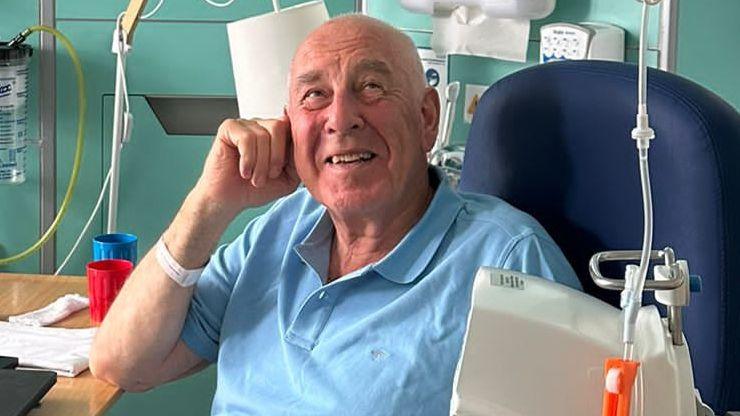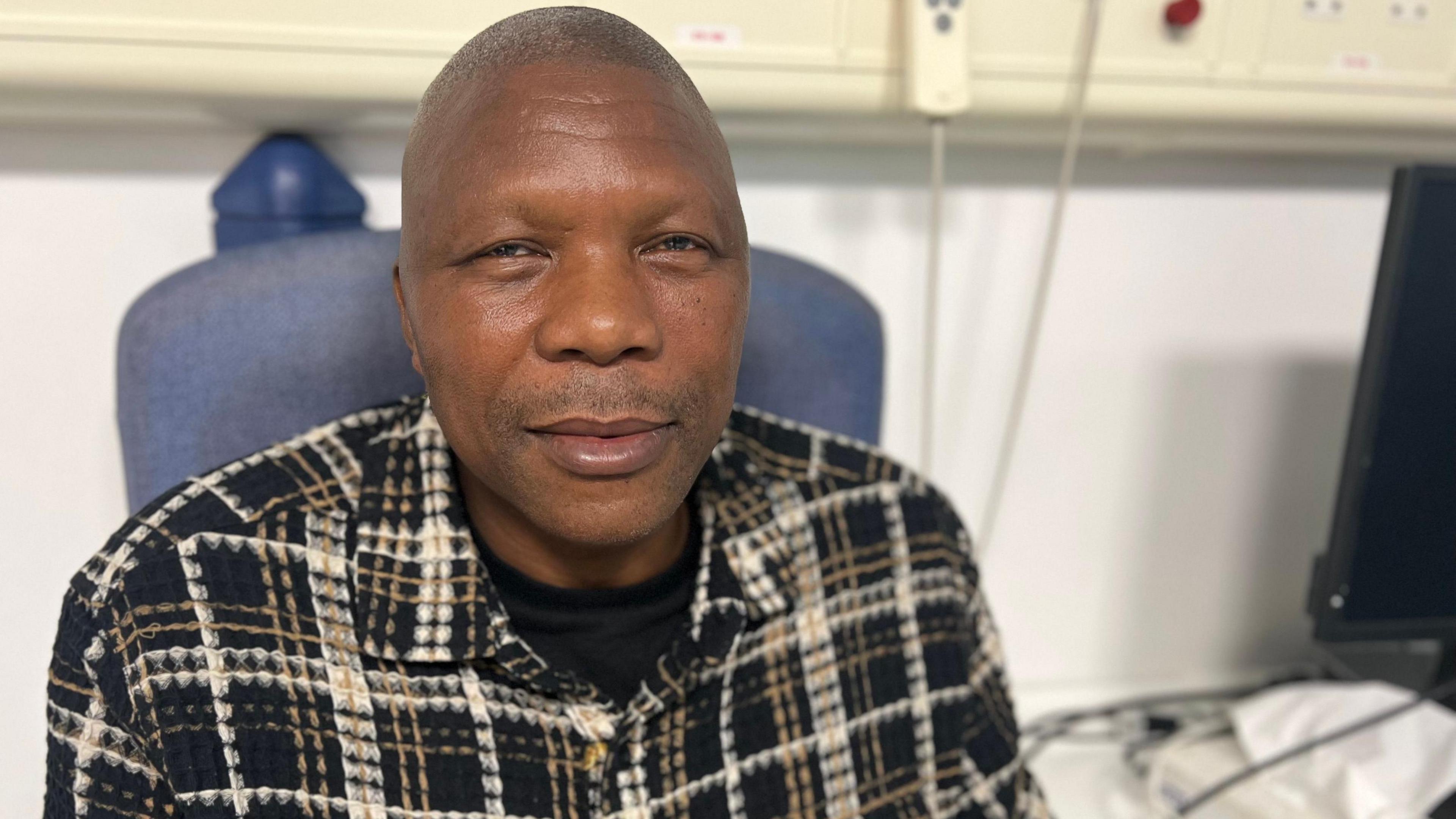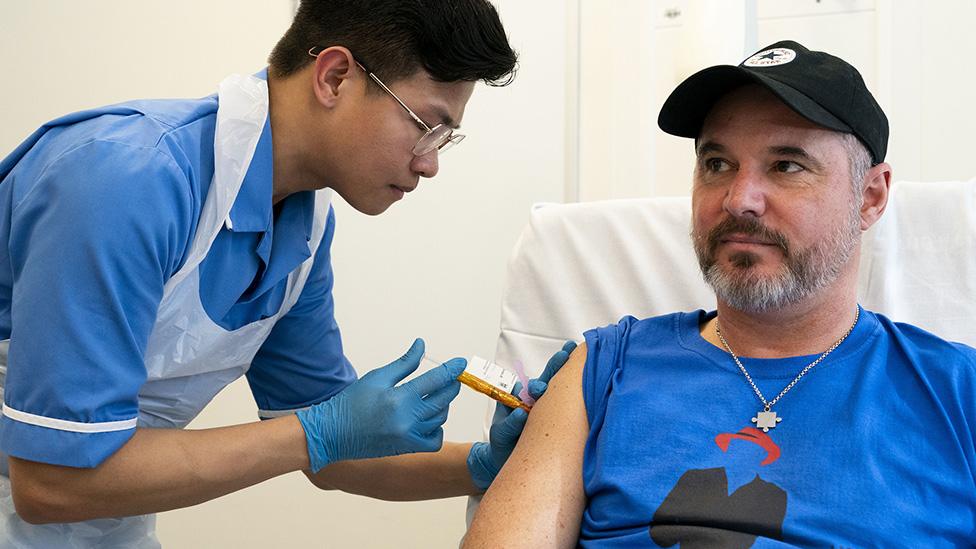Cancer vaccine hope after killer cell research

The university said it hoped to help to develop the world's first cancer vaccine that uses natural killer cells
- Published
Scientists are working on a way of treating cancer by using a patient's natural killer cells to target the disease.
The cells - part of the body's immune system - recognise and attack a protein in cancer cells, according to preliminary research involving the University of Southampton.
Previously it was thought that killer cells acted randomly, researchers said.
The university said it was hoping to help develop the world's first vaccine that uses natural killer cells to fight cancer.

Prof Salim Khakoo said the study showed how natural killer cells fought cancer
Salim Khakoo, Professor of Hepatology, said the protein - known as XPO1 - allowed malignant cells to multiply unchecked in many cancers.
He said: "Our findings actually show how our body's immune system recognises and attacks these cancer cells.
"Patients with cancer who had both active killer cells and high levels of XPO1 had significantly better survival rates."
The university said the study, external was the first of its kind to highlight a viable way of activating killer cells by targeting the XPO1 protein.
Researchers said killer cell treatment could potentially be used to fight liver, head and neck, endometrial, bladder or breast cancer.
Co-author Prof Ralf Schittenhelm, from Monash University in Australia, said: "We hope it could lead to personalised cancer treatment, especially in cases where traditional therapies have failed."
Personalised vaccines, using different mechanisms for fighting cancers, are already being trialled in international studies.
The NHS Cancer Vaccine Launch Pad has started to match patients to studies, although the vaccines remain at the experimental stage.
Get in touch
Do you have a story BBC Hampshire & Isle of Wight should cover?
You can follow BBC Hampshire & Isle of Wight on Facebook, external, X (Twitter), external, or Instagram, external.
See also
- Published26 August 2024

- Published31 May 2024

- Published26 April 2024
